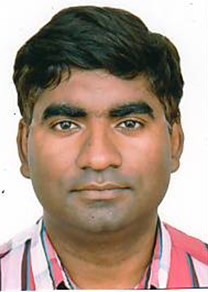Read Jai Prakash’s Emerging Investigator article, ‘Design and engineering of graphene nanostructures as independent solar-driven photocatalysts for emerging applications in the field of energy and environment‘, DOI: 10.1039/D1ME00179E
1. How do you feel about MSDE as a place to publish research on this topic?
It is very exciting to publish research on molecular systems in MSDE because it is unique in this sense which gives a feeling of completeness on such topics. It’s a best platform to publish on molecular design and engineering for multifunctional applications as MSDE appreciates authors provides update on the topics to readers. I recommend the researchers to publish their innovative work on molecular systems to this journal because it’s an emerging field for futuristic device applications as well as more fundamental studies at molecular level.
2. What aspect of your work are you most excited about at the moment and what do you find most challenging about your research?
The graphene based nanomaterials have the potential to compete with metal or semiconductor-based photocatalysts. I believe that next generation of device fabrication would be based on graphene based nanostructured materials especially in the field of energy and environment because of their unique optoelectronic and surface properties. These are emerging 2D nanomaterials showing fascinating properties for multifunctional applications and gaining interest by the researchers from all domain of sciences including biomedical. The key challenge about graphene nanomaterials is to explore as a sole material for different applications.
3. In your opinion, what are the most important questions to be asked/answered in this field of research?
In my opinion, the most important question in research of graphene based nanomaterials is whether these can replace metal based catalysts/photocatalysts in the field of energy and environment.
4. Can you share one piece of career-related advice or wisdom with other early career scientists?
I would suggest my early career scientists’ fellows to work seriously on your topic of research with an emphasis on both positive and negative results. Build networks within your research community and try to make collaboration with scientists around the globe to exchange your ideas for fruitful and meaningful results in that direction. It will not only promote your research activities but also provide confidence to do better in the next step.
Find out more about Jai Prakash’s research on his webpage











